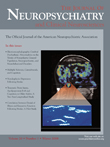Ethnicity and Cognition: Dangers of Biological Determinism
To the Editor: I read with interest the article in the August issue of this journal 1 which reported a negative association between Mexican American ethnicity and cognitive function in late life, but I believe that the findings should be considered within a certain context.
These findings may come to form the basis of improved screening programs enabling early detection and intervention as well as improved allocation of resources, but it would be remiss not to balance such optimism with a cautionary note.
Claims that ethnic or racial groups possess certain biological or cognitive characteristics have a long history within the behavioral sciences and have attracted considerable controversy. The negative social implications may not be readily apparent but such claims may have undesirable social effects.
Prejudice along ethnic lines is often predicated on fallacious notions of the existence of fundamental difference between groups and of uniformity within them. Be it IQ or other biological or cognitive profiles, such markers carry the danger of concretizing perceptions of difference between groups and of sameness within them. In so doing they serve to justify the perception of difference between ethnic groups where such difference does not exist. In the area of race or ethnicity, this can have particular unwanted effects of validating social inequalities.
The most masterful exponent of such ideas was the late Stephen Jay Gould who articulated his ideas most lucidly in The Mismeasure of Man . 2 Gould enunciated the dangers of biological determinism in the context of race.
One of Gould’s criticisms of The Bell Curve3 was that, in championing the idea that inequality is subserved by innate differences, it understates the role of socio-political factors in its perpetuation. Gould asked, “What argument against social change could be more effective than the claim that established orders exist as an accurate reflection of innate intellectual capacities?” 1
Heller et al.’s 1 findings need to be considered in this light. The authors strike an encouraging note of receptivity to possible explanations when they suggest that “as yet unmeasured variables” mediate the reported association and socioeconomic disadvantage may be a potent “etiological factor.” Neuropsychiatry is biased toward locating the explanation for particular cognitive findings “in the brain.” In the absence of an integrative model of cognition incorporating social factors, there is a tendency to misattribute etiology in a manner which minimizes sociogenic factors. When the message is that social inequalities between ethnic groups are underpinned by innate differences, the implications may be particularly invidious.
Sociologists are at pains to stress the complexities and ambiguities surrounding notions of ethnicity. 4 A common error is to assume homogeneity within an ethnic group. The authors fail to address these points to a depth that their complexity warrants. With no guarantee that successive generations are immune to repeating the mistakes of previous ones, it is incumbent upon new generations of neuroscientists and psychiatrists to be cognizant of the issues raised by Gould.
1 . Heller PJ, Briones DF: Mexican American ethnicity and cognitive function: findings from an elderly southwestern sample. J Neuropsychiatry Clin Neurosci 2006; 18:350–355Google Scholar
2 . Gould SJ: The Mismeasure of Man. New York, W.W. Norton, 1996Google Scholar
3 . Hernstein RJ, Murray C: The Bell Curve: Intelligence and Class Structure in American Life. New York, Free Press, 1994Google Scholar
4 . Banks M: Ethnicity: Anthropological Constructions. London, Routledge, 1996Google Scholar



